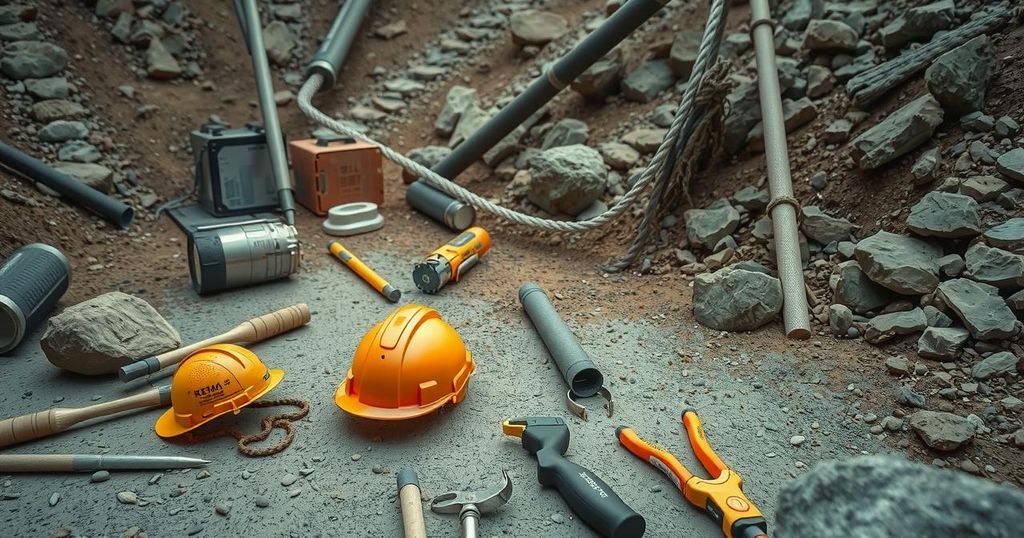Addressing the Tuberculosis Burden Among Miners in Migori County

Artisanal miners in Migori are facing a significant TB burden, accounting for 10% of county cases. Health officials are advocating for protective gear, improved working conditions, and increased screening to combat the disease. A workshop emphasized the need for awareness and collaborative efforts between miners’ unions and health organizations.
In Migori, artisanal and small-scale miners are being urged to adopt protective gear to mitigate the risk of contracting Tuberculosis (TB). Mable Chanzu, the Migori Chief Officer responsible for Public Health and Sanitation, emphasized the need for enhanced working conditions and TB prevention strategies during a workshop that convened various stakeholders from health and mining sectors.
Chanzu reported that miners are responsible for 10 percent of TB cases in Migori, highlighting the urgency to address this issue. In 2024 alone, 191 cases of TB linked to miners were recorded, contributing to the over 2,000 total cases reported in the county. She stressed the importance of engaging stakeholders to improve the health of miners affected by TB and to implement strategies that can reduce transmission on mining sites.
The Chief Officer noted that many miners rely on mining for their livelihoods, but it is crucial that these activities are conducted in ways that minimize health risks like TB. Furthermore, she pointed to a concerning trend of low health-seeking behavior among miners, attributing this to stigma associated with TB and its perceived connection to HIV/AIDS, which inhibits miners from seeking necessary screening services.
Chanzu urged miners who are currently on medication to strictly adhere to their treatment plans for effective recovery. She stated, “We will continue to advocate and do health campaigns in the mining sites to ensure our miners are screened and put on medication to reduce the TB cases in the county.”
In addition, she called on miners’ union leaders to take initiative in raising awareness among miners to combat TB. Washington Ocharo, a county clinician, highlighted the necessity of outreach initiatives at mining locations to facilitate TB screening and case identification, stressing the importance of cooperation from miners’ union leadership in addressing health emergencies and identifying drug defaulters.
Victor Otieno, a representative from the Miners Association in Migori, pointed out that the lack of adequate protective equipment is a significant factor contributing to the increased prevalence of TB and other respiratory conditions among miners. He advocated for regular health inspections and screenings to battle the TB crisis in these sites.
The workshop was organized by the Impact Research and Development Organization (IRDO), which actively copes with public health challenges within vulnerable populations through its programs and research efforts.
In conclusion, the alarming contribution of miners to Tuberculosis cases in Migori necessitates immediate action. Stakeholders, including miners’ unions and health officials, must work together to promote protective measures, conduct health campaigns, and increase awareness about TB and its consequences. By addressing stigma and enhancing access to health services, the mining community can effectively combat the TB burden in the region.
Original Source: www.kenyanews.go.ke







